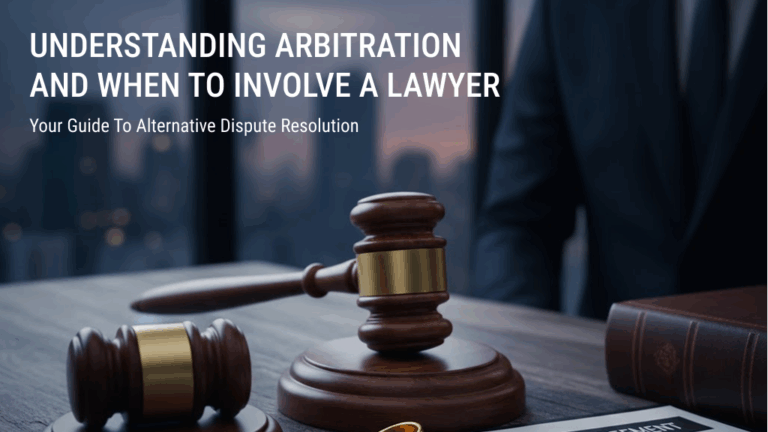
Understanding Arbitration and When to Involve a Lawyer
Arbitration is a faster, more private alternative to traditional courtroom litigation. Businesses use it to resolve disputes quietly, avoid public

Arbitration is a faster, more private alternative to traditional courtroom litigation. Businesses use it to resolve disputes quietly, avoid public

The rise of artificial intelligence has changed the way businesses operate. Tools like ChatGPT can draft marketing copy, summarize articles,
A temporary restraining order (TRO) is an emergency court order that immediately stops a party from certain actions pending a
Selling your business is a monumental decision that requires careful planning and forethought. You’ve worked hard to build your company,
Due diligence is a vital process for anyone looking to buy a business. It involves scrutinizing the target company’s financials,
Resolving a partnership dispute typically starts with informal negotiation and communication to reach a mutually agreeable solution. If that fails,
If you suspect your business partner is stealing money, immediately consult with a business attorney, gather evidence, and protect your
In Texas, forcing a business partner to buy you out is generally possible if a buy-sell agreement exists, or if

The Texas Deceptive Trade Practices Act (DTPA) is a cornerstone of consumer protection law in Texas. Enacted in 1973,